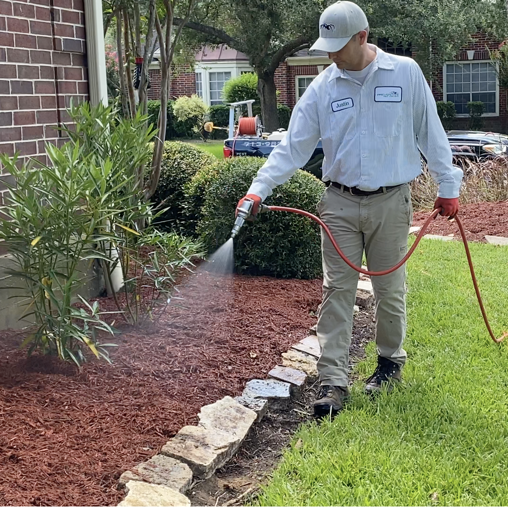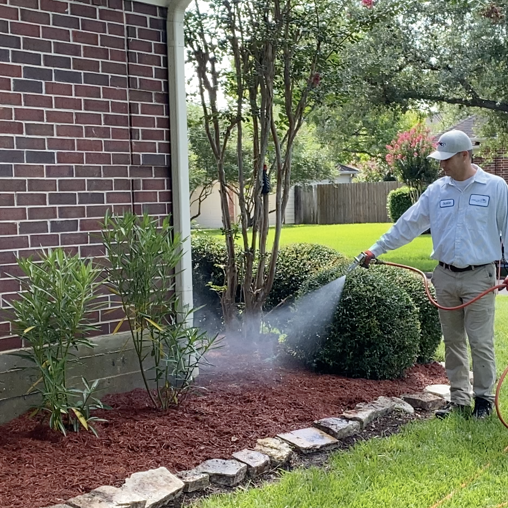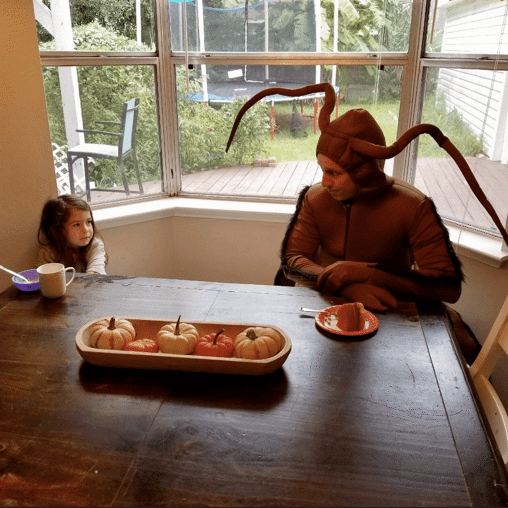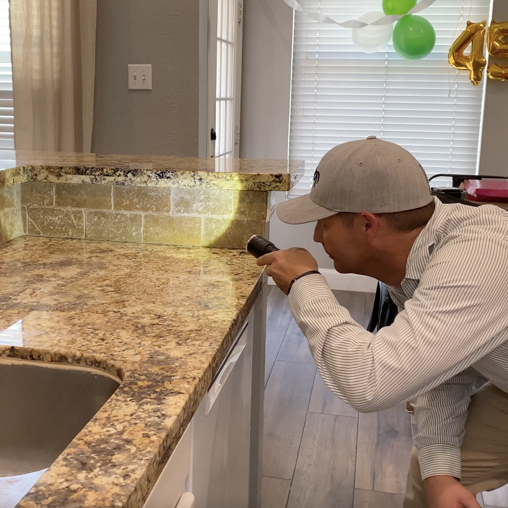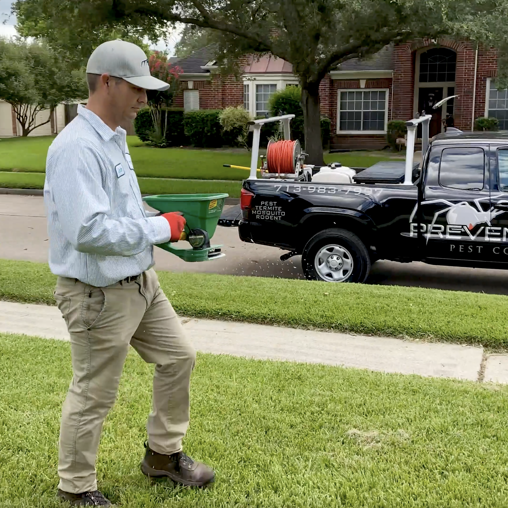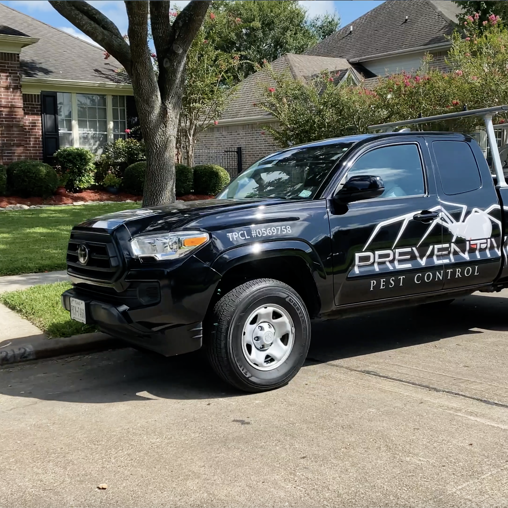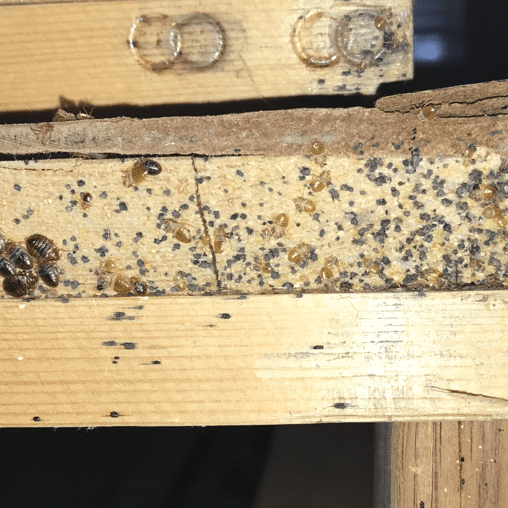
Ant Control Houston
Stop the Ant Invasion - Contact Our Team in Houston!
On its own, a single ant may not seem like a problem. In fact, you may not even notice it as it scurries into your house and makes its way across the floor or your kitchen countertop. What you may not realize is that this single, solitary ant is just the beginning. When ants discover a source of food, they mark the path using a trail of pheromones, signaling other worker ants to follow them to begin collecting. And ants are not afraid to travel tremendous distances in search of food, either.
With their incredible ability to lift several times their own body weight, ants can quickly dismantle and carry off a seemingly tremendous food source, feeding their colony that can be hundreds of thousands or even millions of ants strong.
Call (713) 955-7405 or contact us online today to learn more about our Houston ant control services!
At Preventive Pest Control, we know exactly how to get rid of ants that invade a home or a business. When we go to treat a home or business with an ant problem, we understand the stress and frustration you’re under. We know that the trick to getting rid of the ants is knowing just how to find, bait, and permanently dispose of them for good, and our technicians learn how to do this through frequent training and their own extensive experience.
Every team member comes to you with the tools to get the job done and ant control materials that are safe, effective, and treat your issue thoroughly for a completely satisfactory experience. From treating key areas with bait that kills existing ants and their nests, to taking preventative measures to make sure the ants don’t come back for revenge – we have the Houston ant control solutions you need to solve all your ant invasion problems.
Call Preventive Pest Control at (713) 955-7405 today and we’ll help you get started on solving the problem!
Understanding Ant Behavior & Species in Houston
There are roughly 250 species of ants native to Houston, but you’ll more than likely only encounter one of a few that can cause problems for your everyday life. Should ants choose to make their home where you live or work, you’ll likely have to deal with the stress and frustration this can cause. You may see just one ant and think its presence is not a big deal, only to change your mind a day or two later when an entire line of ants following the same path as the ant you saw the day before.
Preventive Pest Control offers ant control for the following types of ants:
- Household ants: They get their name because they are commonly found near electrical equipment. The tiny magnetic force of the energy moving through lines draws ants to them, where they frequently cause damage to breakers, including shorts.
- Fire ants: Aptly named for three reasons: their distinct, bright-red color that is nearly unmistakable, their fiery temper that causes them to aggressively attack when they feel even slightly threatened, and the fiery pain that their bites sting with.
- Crazy ants: A smaller species of ant that also bites when threatened, but whose bites don’t sting nearly as bad as a fire ant. Crazy ants often invade in swarms, making them difficult to control and get rid of.
Because ants are social insects, they work in organized patterns to gather information using a tracking and communication mechanism through the use of pheromones. Finding where they are coming from can be tricky and locating their nests can be even more challenging. That’s why calling a qualified Houston exterminator for ant control is necessary in order to be ant-free.
PEST PACKAGES
Pest Protection For As Low As $40/Month
-
 BASICThe Preventive Pest Basic
BASICThe Preventive Pest BasicStarting at $40
WHAT'S INCLUDED:
- Quarterly Pest Control Visits Give Year-Round Pest Protection
- Includes 12+Pests - Indoor Spider control, American Roaches, Indoor Ants and More!
- Wasp Nest and Spider removal on each visit where accessible
- Any Issues With Covered Pets Between Visits, We Will Come Back and Treat Again!
- Year-Round Pest Protection
-
 PLUSThe Preventive Pest Plus*
PLUSThe Preventive Pest Plus*MOST POPULAR
FOR HOMEOWNERSWHAT'S INCLUDED:
- Quarterly Pest Control Visits Give Year Round Pest Protection
- Includes 12+ pests with Indoor Spider Control, American Roaches, Indoor Ants, Wasp Nest and Spider Removal Where Accessible
- Our PLUS PACKAGE Is Most Popular For Families That Like To Spend Time In Their Yard. This Package Includes All The Benefits of the Basic Package PLUS FIRE ANT CONTROL!
-
 PREMIUMThe Preventive Pest Premium
PREMIUMThe Preventive Pest PremiumBuild-Your-Own Pest Protection
WHAT'S INCLUDED:
- Basic Pest Control Package
- Bundle Other Pest Services With Your Basic Pest Package Such As:
- Fire Ant Control
- Mosquito Control
- Rodent Control
- Termite Control
- Exterior Flea
- Tick Control
- Whatever your pest issues are, Preventive Pest Control has the solution for you. Customize a Premium Pest Package to ensure your home is protected with a free inspection and quote from one of our Licensed Pest Inspectors.
Get Help With Your Ant Problem Today
Ants do not set out with the goal of destroying your home. While they can cause a heap of trouble if they build a large colony right outside your home or business, most ants enter your building in search of food. The reason ants continue to come back is because the “leader” ant collected information (evidence of food) and then lead the other ants back to collect it. This can cause an unsightly line of these small critters that needs to be taken care of as soon as possible. That’s when you should call Preventive Pest Control for an extermination and prevention service.
For ant control services in Houston, contact Preventive Pest Control today
-
“He not only took care of all the beds, he followed the ant trail all the way to the back of the preserve and knocked those suckers out!”
“He not only took care of all the beds, he followed the ant trail all the way to the back of the preserve and knocked those suckers out!”- Elisabeth S. -
“And the price was very reasonable. I definitely 100% recommend them!”
“It was a great experience having preventive pest control come out. They were very thorough and answered all of my questions!”- L.R.H. -
“I recommend this company because their prices are low and their service is excellent.”
I'm giving this five stars, for two reasons; 1. The staff you speak to on the phone are incredibly polite! If you have a problem, they will listen and do their 100% best to solve it. 2. When I had my initial service done, I felt, at the time, that it was not to my expectations. Immediately I called the customer service folks. The very next day they sent out a manager to come fix any concerns I had. I recommend this company because their prices are low and their service is excellent.- John A. -
“They give feedback and what solution would be for your home. Totally recommend”
“They knocked them out quick. They listen to you. They give feedback and what solution would be for your home. Totally recommend”- Surgical Tech -
“Thanks for helping our family keep the raccoons from causing anymore destruction.”
“Very Polite and educated on the issue at hand. I am beyond terrified of anything that creeps and crawls especially in my attic. You were both calm, cool, and collective while I was ready to bolt out my front door.”- H&P -
“Thorough and highly recommended.”
“We’ve been a customer for seven years now, never had an issue! Even if they’re only doing an exterior service, they are thorough.”- Angela D. -
“Most amazing company in the world!”
“Ive had the chance the see everything from behind the scenes and they are awesome! I’d recommend them to anyone any day.”- Anastasia S. -
“I knew I had made the right choice”
“The service was very professional and the technician was on time responsive to every question that I ask. And the phone service put me at ease and very patient with my questions and concerns I knew I had made the right choice”- Myranda G.






